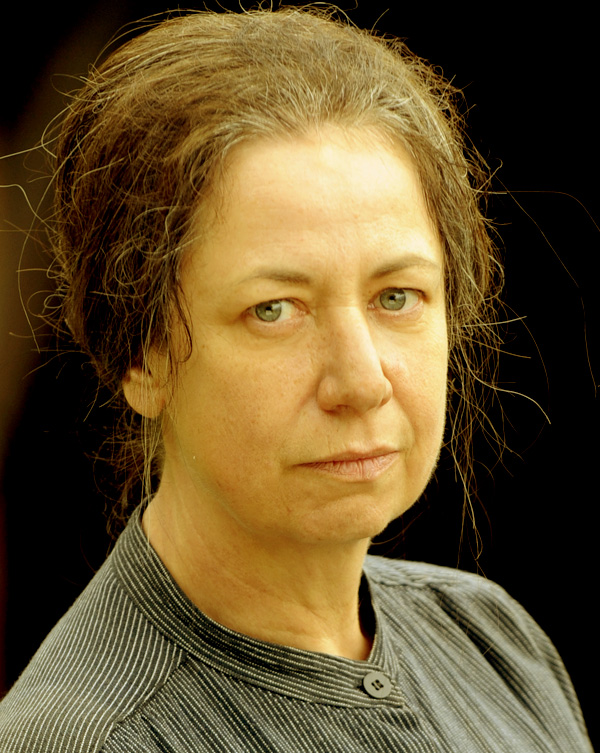Elisabeth Fritzl's story is one that has captured global attention, evoking a strong sense of empathy and intrigue. Her harrowing experience of being held captive by her father for 24 years has left an indelible mark on society, raising questions about human resilience, the nature of trauma, and the road to recovery. Today, the question on many minds is, "What is Elisabeth Fritzl doing now?" After enduring unimaginable suffering, her journey toward healing and rebuilding her life serves as a testament to the strength of the human spirit.
In the years since her escape, Elisabeth has gradually emerged from the shadows of her past. Her story has not only highlighted the importance of mental health support for survivors of abuse but has also sparked conversations about the complexities of familial relationships and the impact of manipulation and control. As we explore Elisabeth Fritzl now, we gain insight into her life after captivity and the measures she has taken to reclaim her identity.
Elisabeth Fritzl's current life represents a remarkable transformation. She has taken significant steps to ensure her privacy while also using her experience to raise awareness about the plight of abuse victims. Through her journey, she has become a symbol of hope for many, demonstrating that it is possible to move forward, even after enduring deep trauma.
What is Elisabeth Fritzl's Biography?
Elisabeth Fritzl was born on April 18, 1966, in Amstetten, Austria. Her life took a tragic turn when she became a victim of her father's horrific actions. After being held captive in a soundproof cellar for more than two decades, she finally escaped in 2008, leading to her father's arrest and subsequent imprisonment. While her early life was marked by trauma, Elisabeth has shown incredible resilience in rebuilding her life.
| Personal Details | Information |
|---|---|
| Name | Elisabeth Fritzl |
| Date of Birth | April 18, 1966 |
| Place of Birth | Amstetten, Austria |
| Parents | Josef Fritzl (father), Rosa Fritzl (mother) |
| Children | 7 (including 3 who were raised in captivity) |
| Notable Events | Captivity from 1984 to 2008; escape in April 2008 |
How Did Elisabeth Fritzl Cope with Her Past?
After her escape, Elisabeth Fritzl faced the daunting task of coping with her traumatic past. The journey to healing was not easy, but she took several proactive steps to regain control over her life:
- Seeking therapy to address her trauma and emotional scars.
- Reconnecting with her surviving family members and forming new relationships.
- Engaging in activities that promote mental well-being and self-care.
- Advocating for victims of abuse and raising awareness about mental health issues.
What is Elisabeth Fritzl's Life Like Today?
Today, Elisabeth Fritzl leads a life focused on privacy and stability. She has chosen to keep a low profile, which allows her to enjoy a sense of normalcy away from the media spotlight. Despite the challenges she faced, Elisabeth has demonstrated resilience by focusing on her personal growth and well-being.
Is Elisabeth Fritzl Involved in Any Advocacy Work?
Yes, Elisabeth has been involved in advocacy work, particularly for victims of abuse. While she has remained largely out of the public eye, she has occasionally spoken about her experiences to shed light on the issues faced by survivors. Her story has inspired many, encouraging discussions about the importance of mental health support and the need for societal change regarding abuse and trauma.
How Has Elisabeth Fritzl's Story Impacted Society?
The impact of Elisabeth Fritzl's story extends far beyond her personal experience. It has sparked important conversations about abuse, trauma, and recovery. Some of the key societal impacts include:
- Increased awareness of the psychological effects of long-term abuse.
- Advocacy for better support systems for survivors of trauma.
- Encouragement for open discussions about mental health issues.
- Promotion of educational programs aimed at preventing abuse.
What Challenges Does Elisabeth Fritzl Face Now?
While Elisabeth has made significant strides in her recovery, challenges remain. Adjusting to life outside captivity can be difficult, and she may continue to face emotional and psychological hurdles. Some of the challenges she may encounter include:
- Dealing with the residual effects of trauma, such as anxiety and depression.
- Maintaining her privacy in a world that is often intrusive.
- Rebuilding trust in relationships after years of manipulation and control.
What Can We Learn from Elisabeth Fritzl's Journey?
Elisabeth Fritzl's journey is one of resilience, strength, and hope. Her ability to overcome unimaginable hardships serves as a powerful reminder of the human spirit's capacity for survival. Key takeaways from her story include:
- The importance of mental health support for survivors of trauma.
- The need for society to listen to and believe victims of abuse.
- The power of advocacy and raising awareness to prevent future abuse.
In conclusion, Elisabeth Fritzl's life after captivity is a testament to her resilience and determination. As we reflect on her journey and the question of "Elisabeth Fritzl now," we recognize her ongoing efforts to heal and advocate for others who have faced similar struggles. Her story continues to inspire hope and foster discussions about the importance of supporting survivors and addressing the complexities of abuse.
Exploring The Life Of Riley Reid: The Journey To Motherhood
Unraveling The Mystique Of GoojaraTo: A Journey Into The Unknown
Is Simon Cowell Still Alive? The Life And Times Of The Iconic Music Mogul


